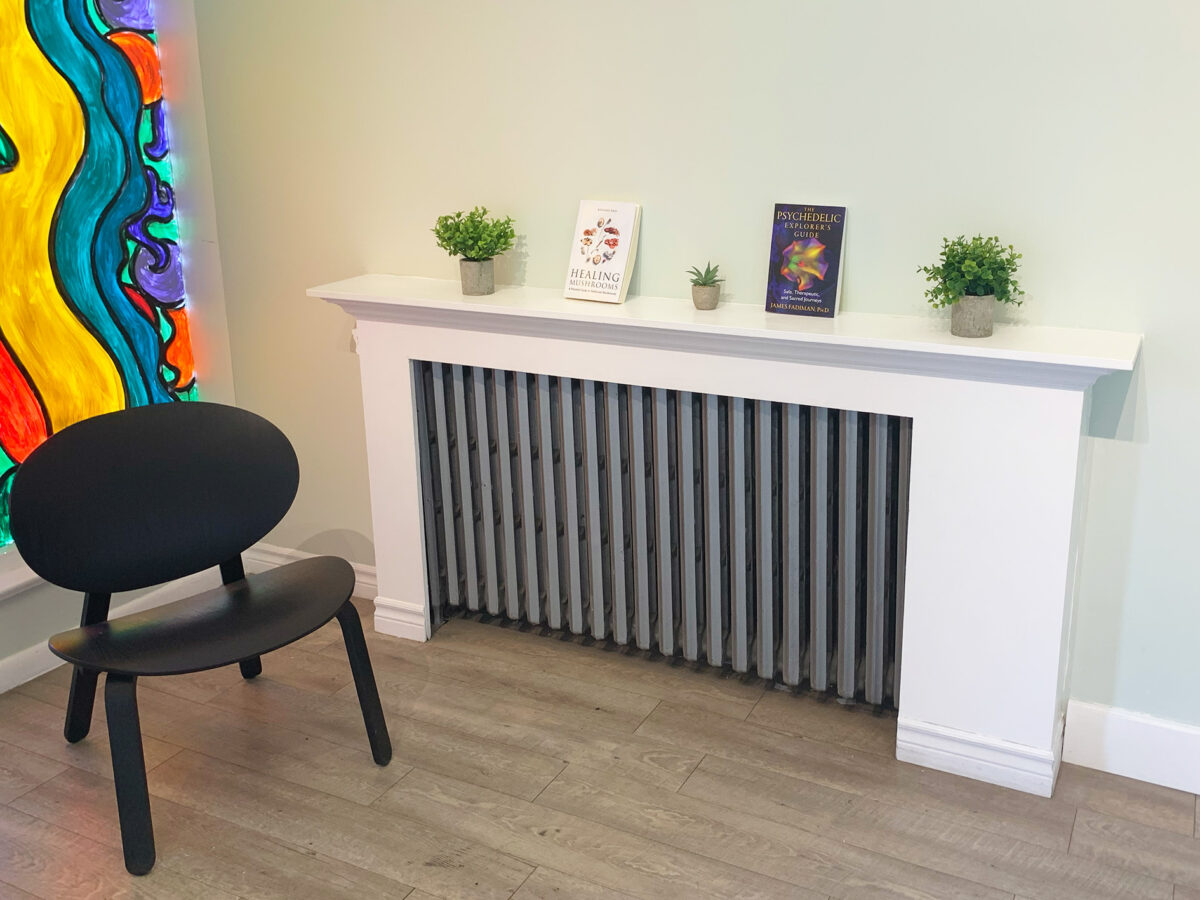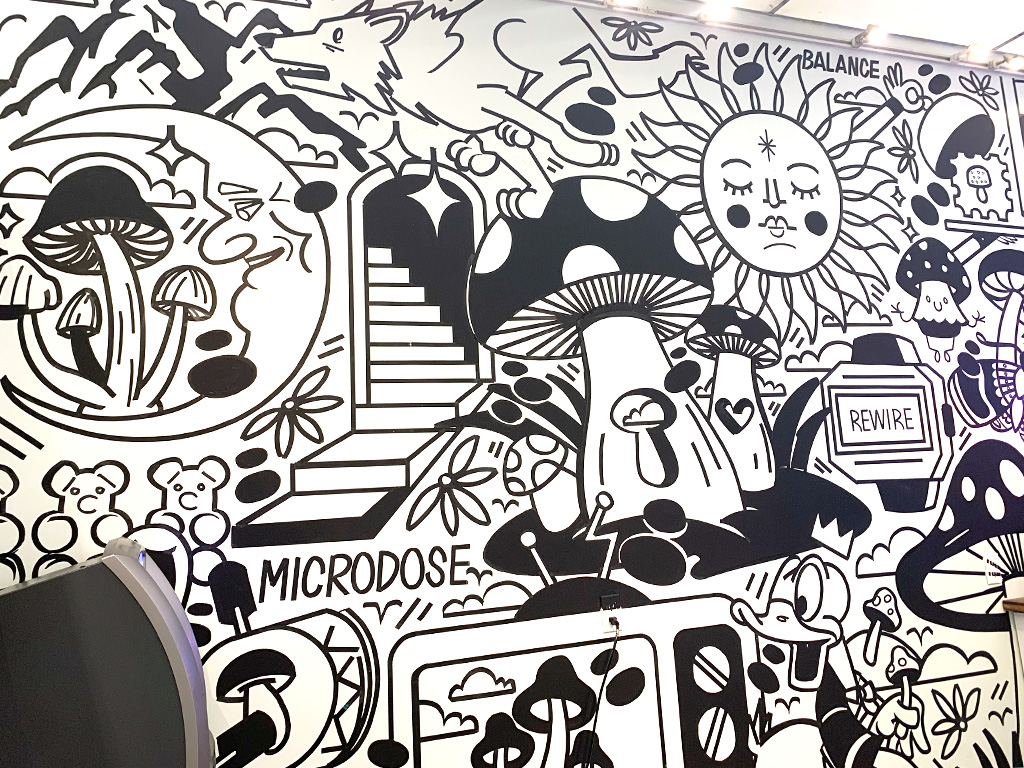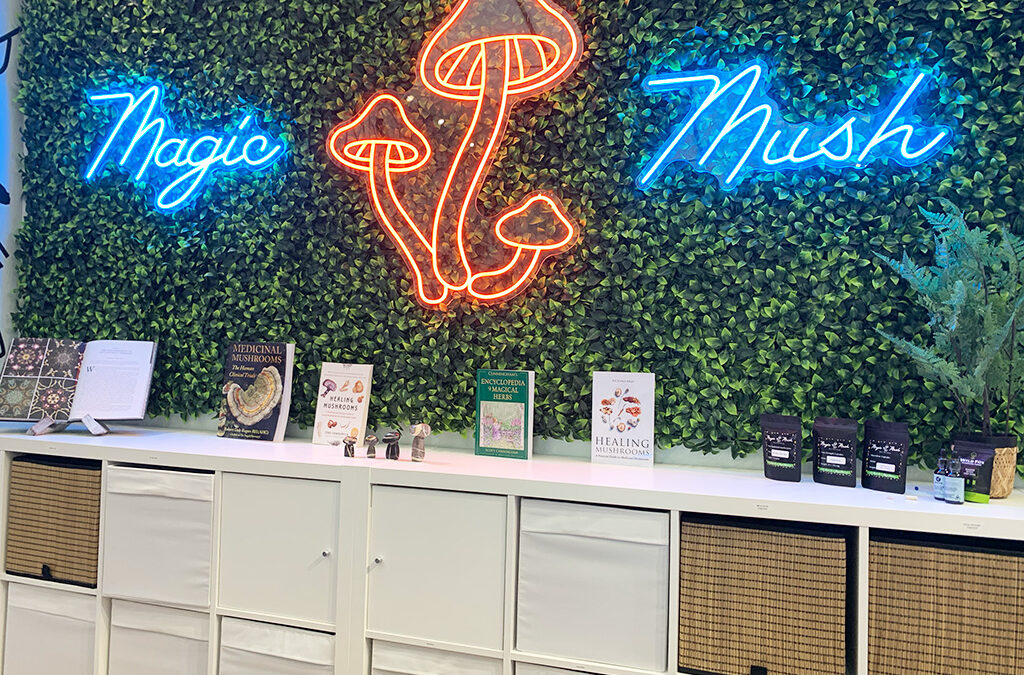Canada’s capital has joined the psychedelic renaissance after welcoming its third magic mushroom dispensary after Health Canada opened a narrow window of permissible use of the otherwise illegal drug.
Magic Mush opened Nov. 1 on Bank Street between Gladstone Avenue and Somerset Street. The store operates in a way similar to the many cannabis dispensaries in the city. Customers can choose from a variety of dried mushrooms, microdose capsules, gummies and chocolate bars that contain varying amounts of psilocybin, the chemical compound found in magic mushrooms.
Under the Controlled Drugs and Substances Act, psilocybin is a schedule three controlled substance. This means it is illegal to consume or possess in any form. Operating a psilocybin dispensary is illegal under the CDSA. Health Canada cleared the way in 2020 for seriously ill patients to be prescribed magic mushrooms.
The owner of Magic Mush, who identified himself only as Ben, acknowledged that, “technically what we’re doing is still illegal. That was a risk that I was willing to take. You have to make that decision mentally. Yes, you can get raided. Yes, you can get in trouble. But do you believe in what you’re doing? Yep.”
He added that, “the main reason why we’re here is because we really believe in mushrooms and the benefits.”
He said he has been able to assist his customers in accessing the beneficial properties of psilocybin. He referenced one customer who, he said, came in with a negative, closed-off demeanour while he was asking about the products offered by Magic Mush.
The next week, “he comes back. he’s looking in the door, and he’s just smiling like a completely different person. Seeing that change in someone was so validating, I feel good about what I’m doing here.”
Zachary Patterson, a neuroscience professor at Carleton University, pointed to the parallels between illicit psilocybin dispensaries and the illicit status of cannabis dispensaries before October 2018.
“I wasn’t surprised at all, and we’ve seen this before with cannabis dispensaries popping up all over the place for like a year — or even longer than a year — before,” added Patterson, who previously worked as a research and policy analyst with the Canadian Centre for Substance Use and Addiction.
We have psilocybin, mushroom dispensaries popping up all over the place. That is certainly an activist effort towards pushing towards legalization and demand and pecuniary interests. … Police are treating it as low priority in terms of enforcement, as they did with many of the cannabis shops prior to medical legalization.”
Jennifer Tobe, lawyer and advisory board member of the Psychedelic Association of Canada
Two other psilocybin dispensaries, Golden Teacher and Shroomyz, have been open in Ottawa since May. Golden Teacher is at the corner of Rideau and Dalhousie streets. Shroomyz is on Preston Street.
Both Vancouver and Toronto have also seen psilocybin dispensaries opening this year.
Jennifer Tobe, an administrative lawyer who is on the advisory board for the Psychedelic Association of Canada, said authorities are not rushing to shut down psilocybin dispensaries.
“We have psilocybin, mushroom dispensaries popping up all over the place,” she said. “That is certainly an activist effort towards pushing towards legalization and demand and pecuniary interests. … Police are treating it as low priority in terms of enforcement, as they did with many of the cannabis shops prior to medical legalization.”

Magic Mush owner Ben said he takes an educational approach when selling magic mushrooms to his customers.
“I always suggest some books and also to go read online, before they actually make a decision. Most of the people end up coming back, then out of those people who have come back, we’ve had a great response, as well.”
Some customers “have had bad experiences buying stuff online,” he said, “because obviously when you are buying stuff online, there’s no responsibility to the customer.”
Tobe said providers of psilocybin products are required to have a licence as well as maintain good manufacturing practices. “We have any number of companies that are becoming licensed producers of a number of psychedelic drugs, including psilocybin or the production of psilocybin mushrooms. And there is access to some of those products right now through special access programs.”
A Health Canada information page on magic mushrooms states: “Health Canada recognizes there are times when access to unauthorized drugs may be appropriate. Patients suffering from mental health disorders should discuss potential treatment options with their health care provider. In some circumstances, with the support of a regulated health care practitioner, it may be possible for individuals to legally access psilocybin.”
“I don’t think that the retail mushroom shop is necessarily the answer,” continues Tobe. She suggests a psilocybin legalization framework will most likely occur in a medicinal context.
“We don’t have somebody monitoring, every time we take an opioid. You’re just limited in the amount that you receive.”
Patterson said dispensaries could pose some risk to the public. He noted that “there’s much less stigma around psilocybin use than there is around cannabis use just because it’s less prevalent and less talked about and less known.”
While he said there are risks associated with the illicit sale of a controlled substance, the potential for harm is mitigated by pre-existing societal structures. “We already have structures built into the fabric of our society that will try to prevent some of these harms. But we still have to acknowledge that risk for harm is still very much present.”
Like Tobe, Patterson said he believes that psilocybin will take a medicinal route toward legalization. “What will get the government to make significant changes is looking at the evidence on the healthcare side and the potential therapeutic value of these drugs.”
Because of the record of positive results from clinical studies as well as patient experiences, many in the psychedelic and mental health community are excited about the potential for the treatment of mental disorders through psychedelic-assisted therapies.
“We talk about mental health now openly,” said Patterson, “and people are much more comfortable putting their hand up and saying I need help. You couldn’t do that 20 years ago.”





